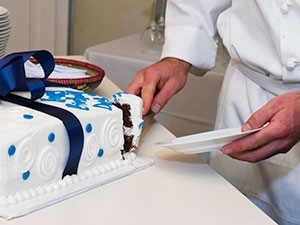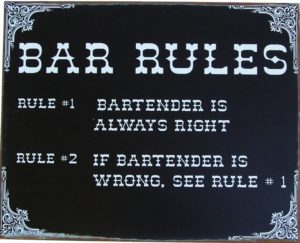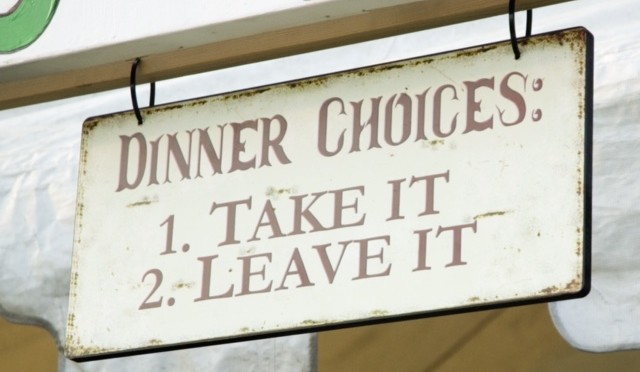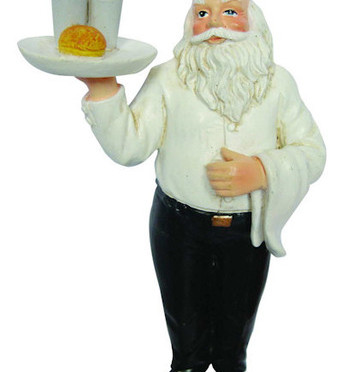The food media has been buzzing lately with articles about restaurants charging exorbitant fees to customers who bring their own desserts from outside sources. They may not show it but restaurants hate serving a dessert someone else sold you as much as they hate serving you a bottle of wine you bought elsewhere. Like corkage fees that are assessed when you BYO, some restaurants will only allow “cakeage” if you agree to pay to have it sliced and served for you. This is not a new phenomenon, restaurants have been doing this forever to offset lost revenues when someone occupies a table longer without buying dessert.
Both sides have valid arguments. To the restaurateur, a lot of effort and preparation goes into the design and execution of a pastry menu—selling food is fundamental to a restaurant making money—and allowing customers to bring their own food, of any sort, is a threat to the health of his business. In some states, like New York, it’s illegal to bring your own food into a restaurant. On the flip side, the customer feels entitled to special dispensation because of the circumstances—they have chosen this restaurant to celebrate a special occasion and allowing them to enjoy a cake of their choice is a way for the staff to make the experience even more special.
But it isn’t always a question of hospitality. What’s lost in this debate is one very important fact: Restaurants must have rules. It’s difficult to understand how critical rules are to the proper functioning of a restaurant unless you have actually worked in one before. Restaurants have a lot of moving parts which, in a perfect world, act in concert to provide a certain experience for the guest. When the rules are easily manipulated they may also be exploited in a way that can cause the gears to grind and the machine to malfunction.

Some diners protest when they are asked to obey strict governance, some flat-out revolt. An issue like seating incomplete parties, ordering food incrementally or making substitutions on the menu can become a flashpoint that quickly sours a positive experience. Unfortunately, it’s difficult to convince people that restaurants only perform to their potential when there are a firm set of rules in place. People often misinterpret this rigidity as a personal affront. In reality, the restaurant is enforcing these rules as a way of protecting their guests—to ensure that the quality of every guest’s experience won’t be compromised. It’s difficult to do this without setting boundaries.
Like all things in nature, there is a natural entropy that exists in restaurants. Ultimately everything eventually descends into disorder and decay—the air conditioning will always break down on the hottest day, the grease trap will overflow during the busiest time of night, or a giant waterbug will surface next to the table that has been least satisfied with their meal. On any given night, the restaurant staff—both front and back of house—spends most of its time swimming upstream, plugging holes in the boat to keep the ship from sinking. It’s easy to get washed away by the current.
Restaurant patrons often refuse to see the bigger picture. A chef might be able to accommodate a substitution on your entrée but allowing everyone to do so will be disruptive. The kitchen has systems in place that require concise repetition of tasks designed to maximize efficiency and minimize mistakes. These systems are fragile and even the slightest hiccup can set off a chain reaction of mishaps that will bring a kitchen and its adjoining dining room to its knees.
Because of the realities on the ground, the frameworks that restaurants devise often end up being less flexible than we’d like them to be. We are keenly aware that too many rules can cause friction with guests because they expect their needs to be put first. The customer may always be right… but one hundred customers can’t all always be right at the same time. Without rules and consistent enforcement, a restaurant quickly devolves into a classroom full of screaming kindergarteners in a school without a principal.

So, this debate over cakeage fees isn’t as simple as just allowing one person to bring their own cake. It’s a policy issue—one that all restaurants should be entitled to enforce according to their own judgement. Once you allow someone to bring their own dessert, you have to allow everyone to bring their own dessert. This opens the door for other more convoluted BYO scenarios. You might have someone with a gluten allergy who brings along a package of their favorite gluten-free pasta expecting the kitchen to prepare it for them in a sauce of their choosing. No.
Chefs put an enormous amount of thought and care into their menus and have a right to control what comes out of their kitchen. An award-winning pastry chef shouldn’t be expected to stop everything in his four-star kitchen to artfully slice the ice cream cake you brought from Carvel. There is a fine line between going the extra mile to enhance the guest experience and taking measures that sacrifice the integrity of your establishment. Unfortunately, whether it’s corkage, cakeage or something else the rules of the engagement will always be a source of controversy, something about which we—the restaurant and its guests—will always, sometimes unpleasantly, agree to disagree.



